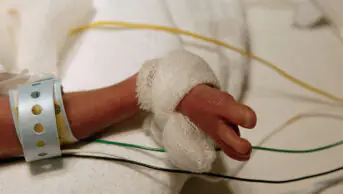
Shutterstock.com
Medication should be optimised and reviewed daily when patients enter their final days, says a draft guideline[1]
from the National Institute for Health and Care Excellence on end-of-life care published on 29 July 2015.
The guideline says that current medication should be reviewed and, after discussion with the patient, any previously prescribed medicines stopped if they are not providing symptomatic benefit or may cause harm.
If the patient is unable to take or tolerate oral medications, different routes of administration should be considered; intramuscular injections should be avoided, and subcutaneous or intravenous injections given as appropriate. Syringe pumps should be considered for continuous symptom control.
The guideline lists a range of medicines that may be needed to manage symptoms experienced at the end of life, such as nausea and vomiting; pain; breathlessness; noisy respiratory secretions; and anxiety, agitation and delirium. People starting treatment for symptom management should start on the lowest effective dose and be assessed regularly, at least daily, and doses titrated as necessary.
People who are nearing death should be encouraged to drink if they wish to and are able to, it says, and assisted hydration should be considered. However, assisted hydration should be monitored at least once a day and fluids reduced or stopped if there is any sign of harm or no sign of benefit.
The draft guideline is open for comments until 9 September 2015. Its aim is to provide guidance after the Liverpool Care Pathway was dropped in 2013 following a government-commissioned review[2]
that found serious failings in how it was being implemented.

